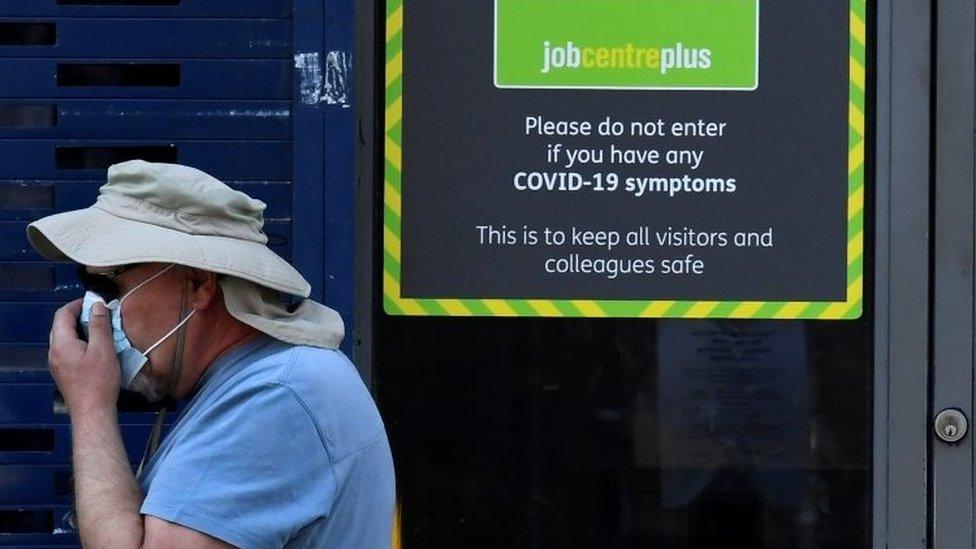Covid: The 'impossible' businesses stuck in Tier 2 'zombie land'
- Published
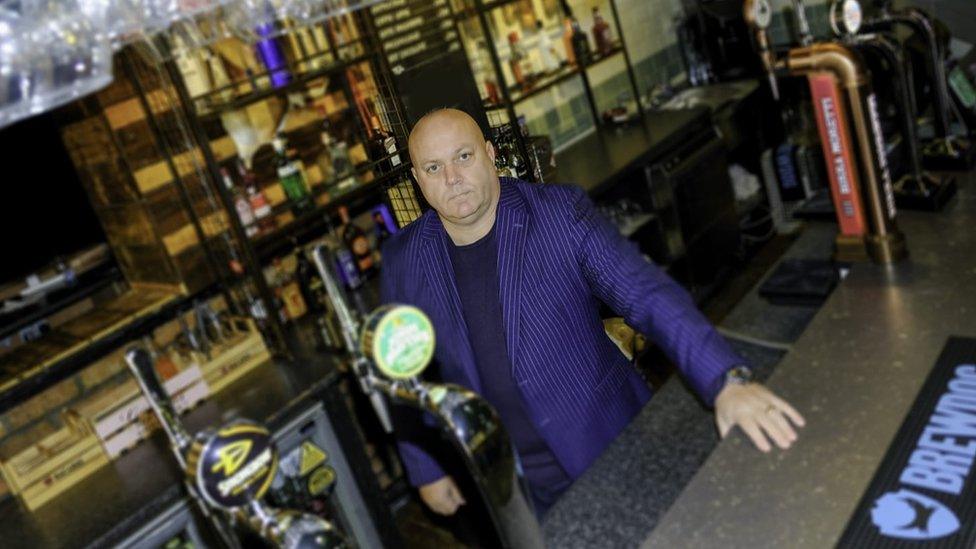
Lee Robson is preparing to cut down his workforce at The Rabbit, in Sunderland - and says the government isn't supporting bars in the right way
As furlough draws to a close, the government's replacement Covid job support scheme - widely criticised for leaving some businesses in England's tier two with tumbling trade but relatively little financial support - has been tweaked to address the concerns. But for some, it's too little too late.
Sunderland has become a "zombie land" since tighter coronavirus restrictions came into effect a few weeks ago, says bar owner Lee Robson, 47. Tier two restrictions include a ban on households mixing indoors, which means Lee's normally buzzing bar and bistro, The Rabbit, has lost a huge number of customers - so many that he's been forced to reduce opening hours to just one day a week.
Lee, who has spent the past eight years building up The Rabbit from "nothing" to an annual turnover of £1m, says his weekly takings have nosedived from £17,000 to £3,000.
"We cannot operate under tier two effectively, it's impossible," he says. Lee's in the process of number-crunching with his accountant, to see if the changes to the Job Support Scheme (JSS), which were announced by Chancellor Rishi Sunak on Thursday to help protect tier two businesses, might be enough to stop him from having to make cuts.
But Lee's initial response is "it's not enough" and Mr Sunak has merely "moved a few percentages about here and there" (in the most generous case, the taxpayer will now go from funding 22% of wages to just under half) making the announcement "a bit of an insult" to businesses like his. He believes a better approach would be for the government to trust that pubs and bars have good enough safety, hygiene and enforcement measures in place that people can mix households and go for a drink, within a Covid-secure environment.
"I don't want their support packages, I don't want their grants. Keep your money, keep your support and your job support schemes and let us do what we do - and we'll do it very safely," he says.
Lee, who was in the Army before he opened The Rabbit, adds it "breaks my heart" that he may have to cut up to 20 jobs, or two-thirds of his workforce, to save his business. Speaking of his close-knit team of workers, he adds: "We've made these jobs and this livelihood for ourselves. This is our home, our workplace, our community."
Part of the revised JSS includes extra grants of up to £2,100 a month for hospitality and leisure businesses in tier two - "high risk" - areas of England, with equivalent funding being made available for grants in Wales, Scotland and Northern Ireland.
UK Hospitality chief executive Kate Nicholls describes the updated measures as "a hugely generous package of support... just when we needed it". The changes will "safeguard hundreds of thousands of jobs," she says. But she also urges grants to be processed quickly for firms "on the brink after weeks of curfew and severe restrictions".
Rishi Sunak: "A plan for jobs, for businesses, for the regions"
However, "it's a bit too little too late" for John, in his 40s, who lives on the outskirts of Birmingham. The chef, who is using a pseudonym, was made redundant from his job at a pub hours before the chancellor's announcement.
"Tier two cost me my job," he says, citing how the ban on households mixing "decimated" demand at the pub he worked in. "I always thought hospitality was a bulletproof industry. I've now been through a couple of recessions and I've worked all around the world - and then in just a couple of months it's just been absolutely destroyed," says John, who has three children.
"I've worked in this industry all my life and I really don't know what to do."
The government has offered support for people who may need to retrain in a different industry as a result of the pandemic - but John feels it would have been better to focus on people keeping their jobs, so they can put the skills they already have to good use.
"Rishi Sunak, he talks about people a lot, but all the aims are towards keeping businesses afloat. Hospitality is built on the back of people, and people are being treated like a commodity."
Anneliese Dodds: "Will he apologise to those who have already lost their jobs?"
While Lee feels the changes to the JSS don't go far enough, and John says they came too late for him, there are others in tier two whose businesses will not benefit from them at all.
Chrissie McLaren, 46, who runs an events business in Leeds with her husband, says the measures are "no good" because they only help firms that have some work to offer their employees. As long as Covid prevents big events from going ahead, Chrissie and Richie are in "an impossible position".
"There's no work to bring the staff back, and even if there were a few hours, it's not enough to bring the money in [for us] to top up wages," Chrissie says - which means in turn that the government will not top up their pay.
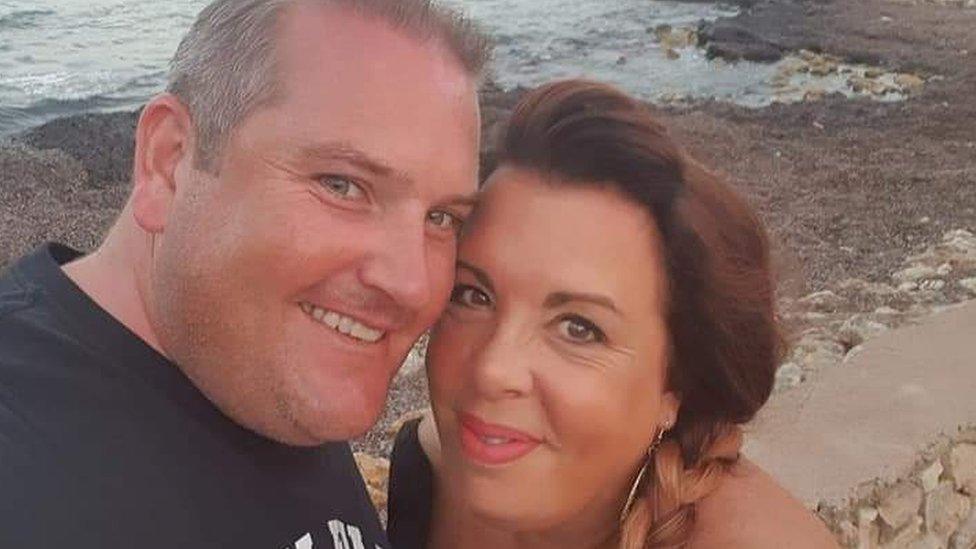
Chrissie and Richie McLaren say business owners in the big events industry have been "shoved in a corner" with no support
The couple got a £10,000 government grant as part of support for small businesses at the beginning of the UK-wide lockdown in March, but that money was used up quickly - in part to help pay to make a staff member redundant. They also took out a small "Bounce Back" loan but did not want "a noose around our necks" so decided not to take the full amount available.
Chrissie and Richie have just 30 temporary staff left out of the 300 on their books before the pandemic. With no prospect of shifts any time soon, most have left to find other work. The company's forecasted yearly turnover of £250,000 is now closer to £26,000.
Chrissie says being in tier two hasn't made her financial problems any worse - but that not seeing friends and family during such a tough time for the business has taken its toll.
"We've got a business that's sat there, clients that are struggling... we're trying to keep our heads up."

LOCKDOWN LOOK-UP: The rules in your area
PAY-PACKET SUPPORT: What will I be paid under the new scheme?
SUPPORT BUBBLES: What are they and who can be in yours?

- Published22 October 2020
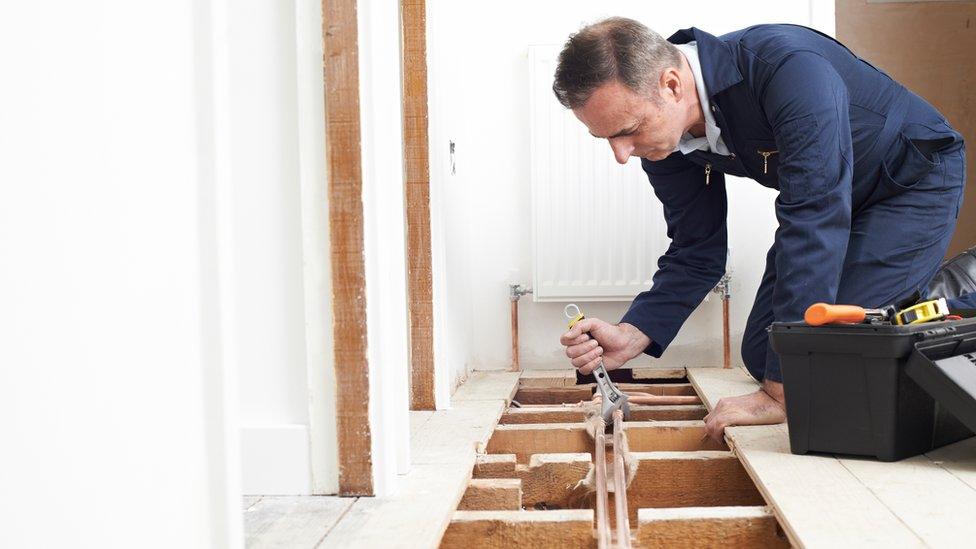
- Published20 October 2020
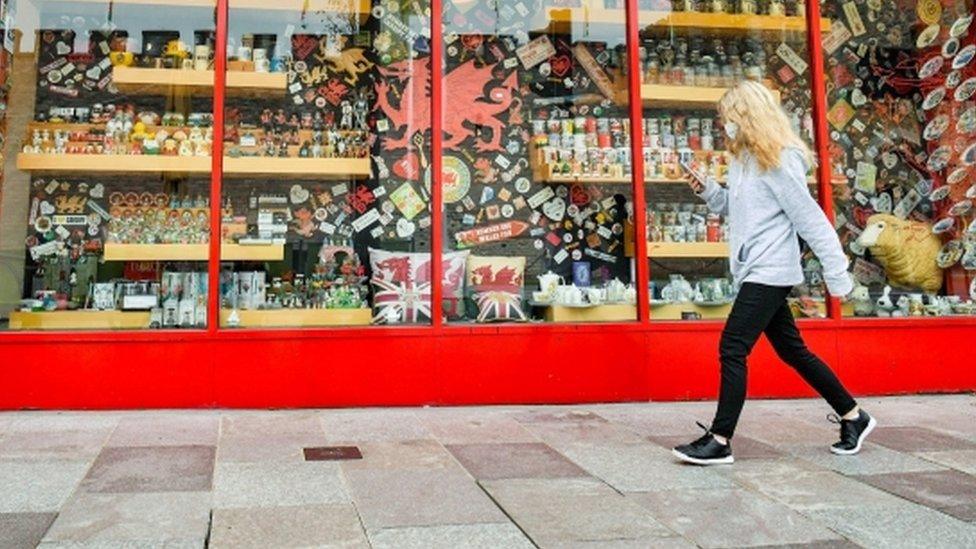
- Published30 September 2021
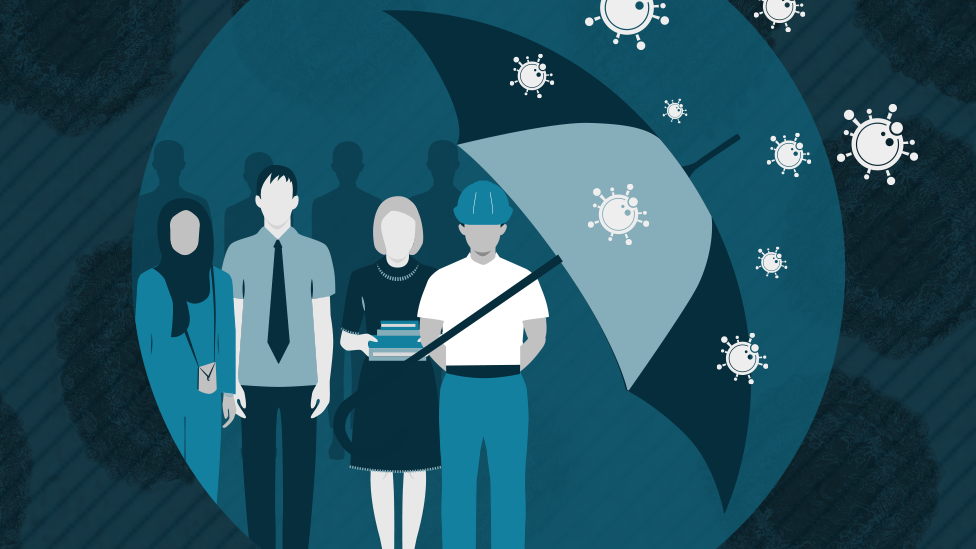
- Published13 October 2020
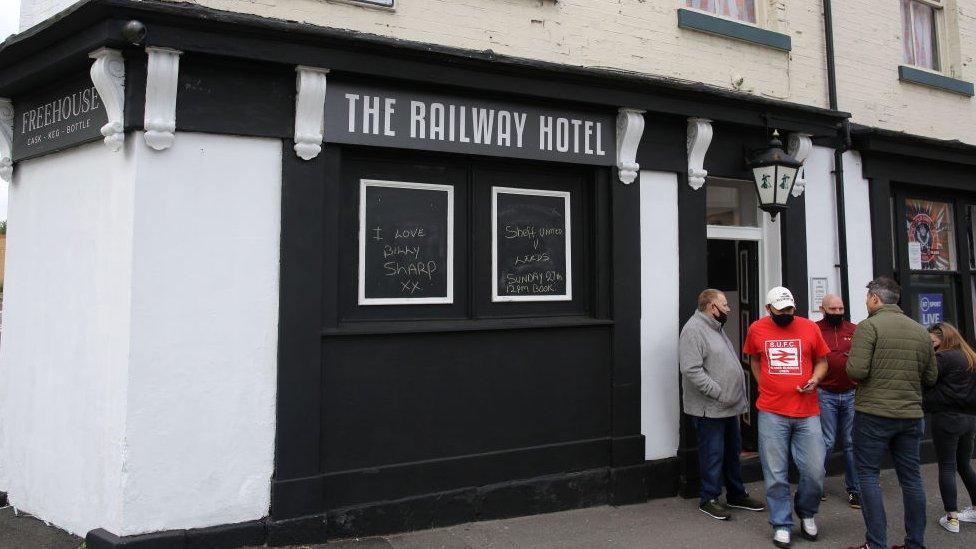
- Published13 October 2020
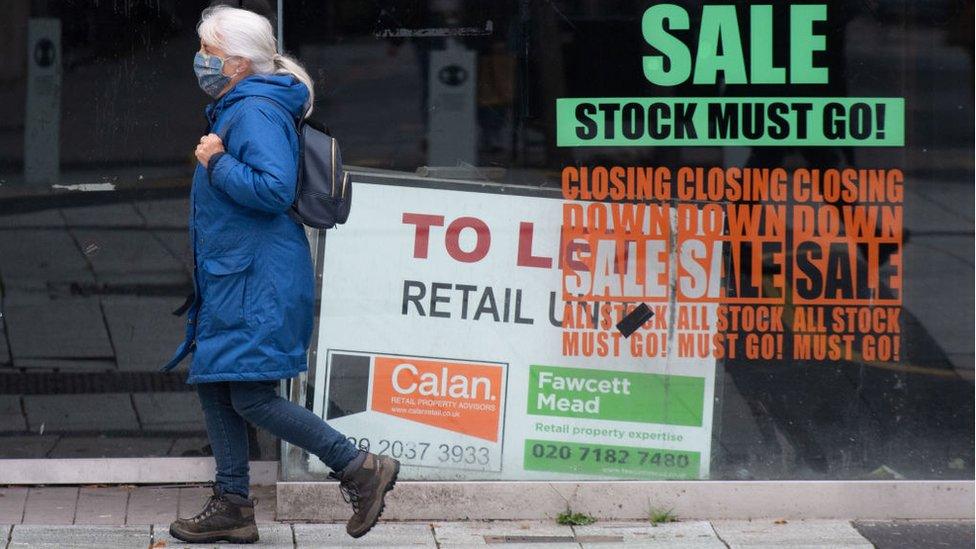
- Published5 October 2020
